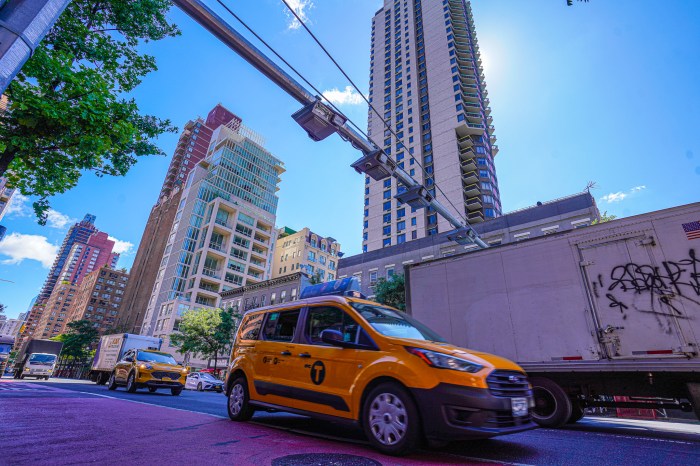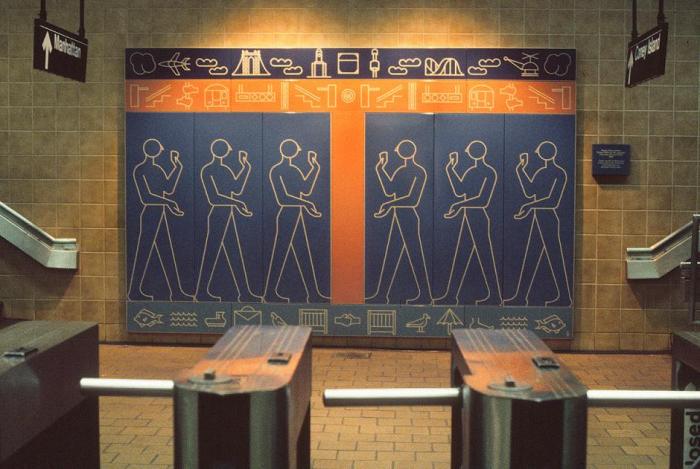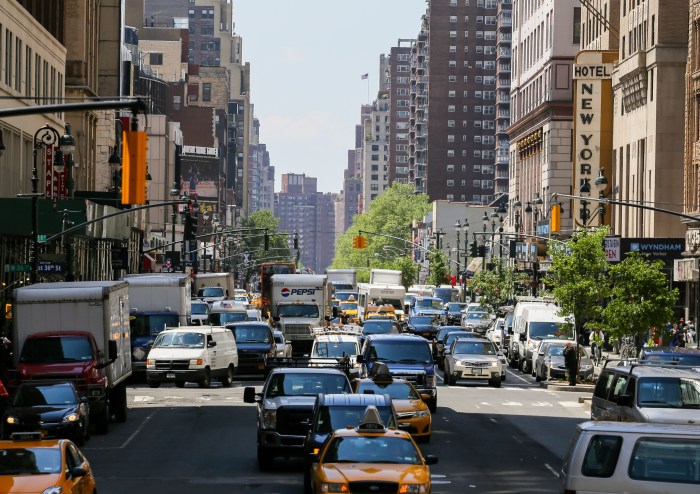
An MTA board member on Monday proposed public shaming to cut down on turnstile jumping.
“I would like to see us capture this behavior on camera and then posting it publicly, whether on our YouTube channel or what,” said Sarah Feinberg, a fairly recent Gov. Andrew Cuomo appointee who chairs the MTA board’s Transit Committee. “That is important to me because when people are publicly embarrassed by this kind of behavior, it helps address it.”
Feinberg, who previously led the Federal Railroad Administration, said reprehending farebeaters could complement the crackdown Cuomo announced last week. That enforcement blitz is slated to steer 500 additional police into the city subway and bus systems.
She praised the plan as “very comprehensive” at a monthly committee meeting Monday — though transit and criminal justice advocates described the idea as misguided.
The MTA estimates that it lost about $225 million in potential revenue from fare evasion in 2018. But critics argue the authority’s method for tracking fare dodging — monitoring specific stations and buses and applying that data more broadly — is flawed and that the board’s focus on the crime is a distraction from more pervasive management issues.
Feinberg also helped usher in a new resolution Monday that called for an authority-wide ban on criminal recidivists. Such a move would have to be passed as law in Albany, but Feinberg believed it was meaningful for the board to put its weight behind the proposal to bar serial thieves and sexual offenders who routinely prey on riders.
"It’s really important that this committee and board move forward with drawing a line in the sand and talking about the importance in making sure we’re protecting the public,” said Feinberg.
The idea, while also supported by the governor, may run afoul of the Constitution and may be impractical to implement, according to David Jones, a MTA board member and president and CEO of the Community Service Society of New York, which supports low-income New Yorkers.
“The difficulty is unless we characterize this extraordinarily narrowly, we’re going to end up sweeping in people and make it almost certain they’re going to return to the life of crime because they won’t have any transportation options,” Jones said.
Feinberg said she was sensitive to those concerns. The resolution does not specify which types of convictions would trigger a ban or how long the prohibition would last — only that there should be mechanisms to bar “certain perpetrators” for “some amount of time.”
“I tried to write it in a narrow way,” Feinberg said. “My priority here is moving forward … I want to make a really clear statement that this committee isn’t going to put up with this and the board is not going to put up with this. We’re going to do everything we can to address it.”
The Transit Committee ultimately passed the resolution, sending it to the full board, which is scheduled to vote on it Wednesday. But because the state’s Legislative session just ended, the MTA would have to wait months before lawmakers could take up the proposal.
Cuomo, who effectively controls the MTA, thanked the authority for the resolution and called for the "strictest penalties possible" for such criminals.
"I am fully supportive of the resolution, passed today by the MTA’s transit and bus committee, to take action against serial offenders including banning them from the system," Cuomo said in a statement. "The New York State Legislature and criminal justice system have a responsibility to work with the MTA to ensure these perpetrators — who repeatedly target victims on our subways and buses — cannot continue this abhorrent behavior."

































